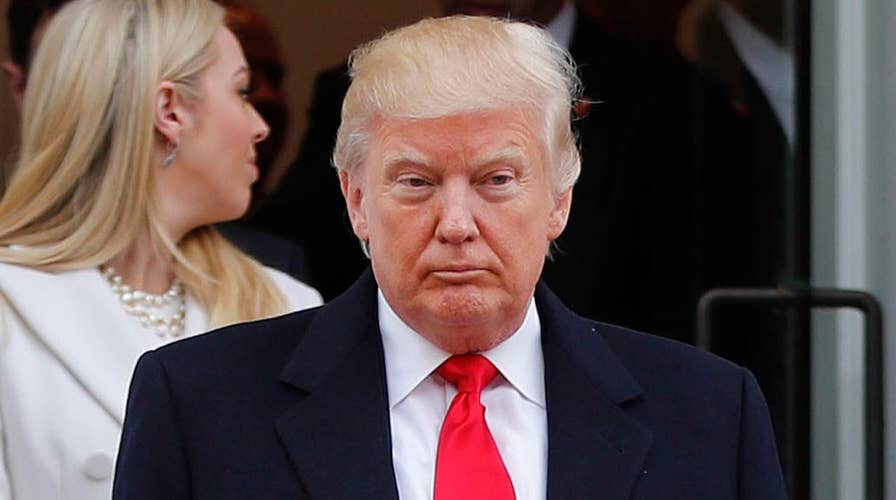Two Democratic lawmakers introduced legislation Tuesday that would prevent President Trump from launching a nuclear weapon without a obtaining a congressional declaration of war.
Foreign Policy reported that the bill was introduced by Sen. Edward Markey, D-Mass., and Rep. Ted Lieu, D-Calif. The article notes that Lieu has a paper sign outside his office that reads, “Alternative Fact Free Zone.”
Under current law, the U.S. president can order a first-use nuclear strike even if the U.S. is not under nuclear attack.
Trump was asked by ABC News Wednesday about the responsibility of receiving the nuclear codes and responded that it was a “very sobering moment." “It’s very, very, very, scary in a sense.”
During the campaign, Hillary Clinton made it a point hit Trump on his temperament and what she called his erratic use of Twitter. She said, “A man you can bait with a tweet is not a man we can trust with nuclear weapons.”
Markey said in a statement that nuclear war is the “gravest risk to human survival," and he is concerned that Trump suggested in the past that he would consider a launch against terrorists.
Markey was likely referring to Trump's comments in March, when he was asked a hypothetical question about an ISIS strike and responded, “I would never take any of my cards off the table.”
Trump was also criticized during the campaign when he said, “Let it be an arms race” with Russia.
The bill has gained support from various global disarmament groups and former-Secretary of Defense William Perry, who served under President Clinton.
In August, The New York Times wrote extensively on the president's responsiblity with nuclear codes. The report said that it is up to the president to decide whether a nuclear attack on the U.S. was real, and, in turn, could have only minutes to decide if it warranted a nuclear response. The sitting president could launch as many as 925 warheads—about the equivalent of 17,000 Hiroshima bombs.
“There’s no veto once the president has ordered a strike,” Franklin C. Miller, a nuclear specialist who held White House and Defense Department posts for 31 years, told The Times. “The president and only the president has the authority to order the use of nuclear weapons.”
The New York Times report said a spokesman for the National Security Council refused to say if there is anyone in the chain of command who could overrule a president’s order.
The Independent newspaper reported that, in the event of a U.S. nuclear strike, Trump would essentially be giving his Secretary of Defense the authority to authorize the launch. If his secretary refuses, he could be fired and the president would turn to the second-in-command.
“Between the time he (the president) authorizes one and the time it’s carried out, there are other people involved.”




